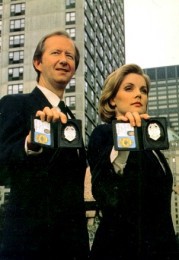How To Become a Math Person, Vol. 1

An article on Quartz makes the argument that we should not think of math ability as innate and ourselves as either “math people” or not.
This 2007 National Institutes of Health Public Access twin study, using relatively transparent methods, estimates that genes account for somewhere in the range from 32% to 45% of mathematical skill at age 10. That leaves 55% to 68% of mathematical skill to be accounted for by other things — including differences in individual effort. (Other estimates of the percentage of variation of mathematical skill in kids due to genes range all the way from 19% to 90%.)
How do we fix the problem? How do we act as though we have faith (in ourselves) so that faith will be given to us? It’s easy:
spend time doing math in the kinds of ways people who love math spend time doing math. Think of math like reading. Not everyone loves reading. But all kids are encouraged to spend time reading, not just for school assignments, but on their own. Just so, not everyone loves math, but everyone should be encouraged to spend time doing math on their own, not just for school assignments. If a kid has a bad experience with trying to learn to read in school, or is bored with the particular books the teacher assigned, few parents would say “Well, maybe you just aren’t a reader.”
Others have made this argument before. The woman who just won a Fields Medal, Maryam Mirzakhani, did not initially conceive of herself as a math person; like so many of us, she wanted to be a writer. She was only inspired to start studying STEM late in high school.
Is there hope, then, for a person like me? I have some decent bona fides: once upon a time, I liked math and science, went to computer camp, learned how to code. In school, I was a decent B or B+ student in Honors levels math classes through high school, but I had no confidence, none, and gave up as soon as I was allowed. Math felt vicious and alien. One year, early on, some test score bumped up me to Super Honors Math, and I was so scared by not understanding what was going on, and even more scared that I would be branded “stupid” if I acknowledged that I needed help, that I avoided homework completely and spent class time alternately in the Nurse’s Office with stress headaches and with the Guidance Counselor, a kind lady who gave up trying to ask me why I was there and just let me hang out. My terror became a self-fulfilling prophecy: I failed mostly from being too scared to try, and yet all I retained was the lesson that math = failure.
Innumeracy has real repercussions, still. I get flustered sometimes when faced with simple arithmetic, lest I botch a calculation that should be obvious. Part of the reason I’m shy about budgets, banking, and finance in general is that it involves numbers and so makes me feel like an outsider. Ridiculous, I know. Almost pathological. Maybe it’s too late for me to make a dent in any of this but I’m kind of inspired by this article, and by Maryam Mirzakhani, and I would like to try. I’m tired of being a Barbie-ish stereotype sighing, “Math class is tough!” And I assume that Step 1 is assuming that becoming a math person — or at least thinking of myself as someone who could become a math person — is possible.
I’m going to do some more research on what the experts recommend, talk to some “math people” about how they think they got to be that way, and report back. Have you overcome a sense that you yourself are not a math person? What worked for you?
Support The Billfold
The Billfold continues to exist thanks to support from our readers. Help us continue to do our work by making a monthly pledge on Patreon or a one-time-only contribution through PayPal.
Comments